|
5 stars
Me: I will never read a book with the cheating trope!! Never!! Sara Cate: Bet. Me: *immediately smashes that TBR button and consumes the story* When I tell you I devoured this story, I need you to know that I mean that literally. The Home Wrecker consumed me—this polyamorous story of Caleb, Briar, and Dean was one that I never thought I'd be interested in reading but, once Sara Cate introduced me to these characters, I knew it was all over for me. I don't like books with the following tropes: cheating, established marriages, or large plots involving children/having children as a main element of the story. I also speed away from all books centered on religion. The Home Wrecker had all of my no-no list tropes. It's about an established marriage in crisis surrounding two extremely religious characters who are trying to conceive their second child and fracturing apart because of their failures. Even typing out that sentence, my body is going ICK, PLEASE, NO. Those things are (were) not for me. But I was intrigued by The Home Wrecker's premise: Briar and Caleb, our married couple, find themselves orbiting around a new man in their lives—Dean. Dean is an escort with a very open sexuality (he's bi) and a sensuality to his lifestyle that both Briar and Caleb cannot understand. Dean's happy with who he is, he's not religious, and he's not afraid of his own desires and wants. Both Caleb and Briar are afraid of so many things. When Dean's presence starts to unravel the tightly wound nest of problems at the core of Briar and Caleb's relationship, all three of them start to realize that maybe... there's something else worth fighting for in this tense cold war. The core of the story is Briar and Caleb's relationship and how Dean finds his own home and belonging within their arms--I don't want this blurb to sound like Dean is a tool for the "main pairing" to thrive. Sara Cate has written a truly polyamorous love story here and Dean's own personal arc and journey are just as important as both Briar's and Caleb's. The marriage pairing might be the sexy and taboo hook here for the marketing, but I want to highlight Dean's own individualism in this story. His happy ending is very much at play here too. If you can handle the idea of these tropes, and you're willing to explore non-heteronormative traditional endings and acceptance, then I'd love to point you toward this book. It's a fulfilling and loving story of acceptance and personal growth wrapped up in a very Sara Cate-style sexy package. Come for the spicy taboo. Stay for the feels. I promise you won't regret it. (And trust Sara on the cheating trope! I did.) Thank you so much to the author for my advanced reader copy and the wonderful goodie package!!
0 Comments
4.5 stars
Well then. I haven’t felt that level of creeping, utter dread in quite some time—and certainly not while bathed in the surface level story of a sunshine cottage core sapphic love story. This story isn’t about the shock of a reveal. It’s about the never-ending ceaseless anxiety of the trap closing softly around you. Too gentle to identify as a danger. Too inexorable to escape. I'm not even going to describe this story, because I think it works best when you can experience the inescapable dread in real time. Stunning novella. Polarizing if you think the “reveal” is meant to be the draw of the tale. Recommended highly to my other short/weird/queer horror fans. 5 stars
This was quite the experience. I’m not sure how to talk about it? ...But I'll give it a whirl. I feel like Pam Godwin is in her own category and should be reviewed and talked about as such. Concept: truly dark, truly a Pam experience, truly gripping Sense of danger: ★★★★★ Characters: ★★★★★ I have no idea how to talk about this book—I feel that way about most Pam Godwin stories, let's be honest—because it's one of those stories that's meant for a very select readership and those readers often find these stories organically on their own. So please understand me when I say that this book is NOT for everyone. And it's not even for most dark romance readers? It really, REALLY depends on your personal boundaries and preferences. Let's pitch it like this... Did you love Credence by Penelope Douglas , but you wanted a lot more angst with a real polyamorous angle, a lot more trauma, a lot more triggers, and truly terrifying scenarios? Do you love horror and thriller books with twisted sexual angles in them? Do you have the will to experience realistically paced triggers on page? If you answered yes to all three of those things, then keep reading this review. (If you answered no, that makes sense and I love that for you, but then do please check out some other books instead of this one.) Hills of Shivers and Shadows is a story about survival, first and foremost. And a love story as a distant second subplot (that clearly will grow in the later two books in this trilogy). Don't come for the romance—it's not really about that. It's a study of psychology, of locked-room decision making, of only hard choices and no ability to abstain. What would you do if you were trapped and couldn't get out? Are you the type of character who, when caught in a bear trap, would chew off your own foot to survive if you needed to? Could you do it? This is the kind of questioning that Pam puts our characters through. And it's the kind of gripping, engaging narrative style that forces the reader to consider those same questions of evil versus survival and the depths of human resilience when placed in the darkest of nights. It's a 5-star read for me. But let me explain why, because I don't want to say it's a favorite because of the trauma or the triggers—the pain and traumas in this novel are NOT fetishized for the reader. This is a 5-star for its grip, its realism, and the sheer kudos that must be given to Pam for how absolutely singular this story was for me. Trigger warnings abound in this novel. Click here to visit the author's website to view the list. Thank you to the author for my early copy. 3.5 stars
This was super fun and lighthearted (and very focused on the steamy factor). A different kind of Lily Mayne book, but a fun time nonetheless! Concept: super fun Plot/Pacing: a little repetitive Romance: adorable and filthy Impromptu Match is the first in a nostalgic, 1980s-ish old-school pageantry-wrestling monster romance series. Yeah, did you get all of that?? That series of words is a lot to take in, but it's accurate and I wanted to make sure we all started off on the right foot. Lily Mayne is known, or at least known to me, as the writer of intense, somewhat angsty, post-apocalyptic MM monster romances that I've read and some equally angsty fae romances that I have yet to read. She writes extremely well-paced and engagingly plotted stories with softboi romances at the core of darker tales. So this... lighthearted wrestling sexfest was a departure from the norm. NOT an unwelcome one, but I did want to state for the record that I come from Mayne's more serious fare and, honestly, would have skipped over this book if not for the author byline. I think that a new readership to Lily Mayne will love this story. It's soft, it's fun, and it's not here for a deep time—just a really fun one with lots of steamy fluff wrapped up in a wrestling bow. Because I came from Lily's more serious fare... I found this one really easy to put down due to the lack of higher stakes. This is NOT the fault of this soft, happy novel. More a reflection on who I am as a reader and what I'm looking for (cough cough, that drama). Come for the softboi-in-love vibes, stay for the iconic wrestling outfits and hilarious antics of this hidden monster community! 4.5 stars
Wow, I loved this a lot. In the high-stress environment of wedding planning, two people collide over and over and find that sometimes, second chances work out... Forget Me Not is the story of a chaotic wedding planner and a grumpy florist. Ama doesn't believe in long-term love, but she's committed to bringing everyone's dreams to life with customized and personal wedding days. Elliott's the reluctant son of a florist legacy who never wanted to work with flowers, but he discovers that creating architectural floral masterpieces is his true calling. They made an odd pairing, but they worked. Until they didn't. And everything fell apart. Now it's two years after Ama and Elliott broke up badly. Ama's received the wedding commission of her dreams: an influencer and her bride want to use Ama's planning services for their showstopping wedding. The catch? They only want to work with Blooming Flowers—Elliott's flower service. Neither Ama nor Elliott are able to turn this job down—it could make or break their careers and put them on the national map. So these two exes have to put their pride aside and work together. With the pressure on and their lingering chemistry sparking the air... Anything can happen. Why not a second chance at love? Y'all, I read this entire book in one night. I couldn't put it down. Julie Soto has a talent for compelling characters and scenarios and her writing just plain fun and funny. I laughed, I anguished, I couldn't get over the exquisite tension between Ama and Elliott. My one caveat to this amazing reading experience is this: I didn't care for the dual-timeline style. (I know, I know.) I'm personally not a fan of flashbacks/flashforwards when they're used as a main plot device. This story alternates chapters from the present timeline and the past timeline in such an integrated way that a good 50% of the story takes place in the past. That's not my personal preference, so I kept wishing we'd fade that element away earlier in the novel and stay in the present for maximum dramatic effect. However, that being said, I still loved this story and it's a new favorite! 5 stars
From one classic film buff to another, this book was exactly my cup of tea. It's as campy and cliche as those classic 1930s films and captures the soul of the iconic movies like its title's original, It Happened One Night. Let's start this review from the end: my final thoughts and a reflection on the shockingly low average rating of this book by other readers. I'm really sad to see the low average. But I get it, I do. I think this novel took so many nuances from the classic movies it was referencing—and in such an one-the-nose AND somehow subtly organic way—that it looped from a level of clever referencing back onto itself with an over-the-top edge that appears to have turned off several readers. This novel captured the camp and cliches TOO well, and therefore it seems like a some readers see this romance as derivative, ridiculous, and not authentic. (I am not trying to shame or call out anyone who didn't love this book, to each their own.) As someone who's seen the movies that Lenker references in her afterword, I thought she nailed it. The soul of those movies and that era of filmmaking was captured in this novel—romanticized for the rom-com nature of the story, it's true, and omitting the period's racist ideals—and so It Happened One Fight felt like the best of fanfictions for themes and dialogues that I know so well. Dialogue repetitive and themes over-dramatized? That was the early 1930s' jam! Grandiose feelings and actions and constant external verbalizations of themes? This too was the era! Joan Davis is a movie star, and a damned good actor, too. Unfortunately, Hollywood only seems to care when she stars alongside Dash Howard, Tinseltown's favorite leading man and a perpetual thorn in Joan's side. Davis and Dash, constantly together and constantly clashing—their onscreen chemistry leads to fantastic blowups on set, and their famous feud heightens each box office sale. It's a classic Hollywood setup, and Joan's tired of it. So when Joan announces her engagement to Monty, another swoon-worthy Hollywood leading man, the LAST thing she expects is to find out that she's actually...already married? It turns out an onscreen marriage scene to Dash in an early film was much more legal than anyone thought. And somehow, a real marriage license made its way to a City Hall office. Yep, that's right. Dash and Davis are actually husband and wife. And Joan is PISSED. (Dash's feelings are more on the humorous side, as he loves to see Joan spark with emotions.) To fix this huge blunder, the two stars hightail it to Reno, where divorces are easier to grant after a quick 6-week residency. Their current film was already about a divorcee finding love on a remote ranch. A quick script rewrite and boom! Reno Rendezvous is ready for camera, set, action. But six weeks is a long time to be that close together, and Joan and Dash are about to discover that their feelings might not be so simple after all. And they're already husband and wife, so... Cue some shenanigans on set and behind the scenes. UGH. I loved this story. It was so much fun, and let's be honest: I did tear up there at the end. This romance was everything I was looking for in this setup, and the film buff in me enjoyed every reference. The characters were sweet, the plot was unique for the modern "illustrated cover romances" of today, and it was the perfect level of banter + slow burn + amusing setups. I just think this novel is a lot of fun, folks, and the author did a superb job at honoring the source material and twisting it slightly for modern readers to enjoy without making the romance, the characters, or the setting feel too modern. Come for the nod to the classics, stay for the nod to the classics. This is such a fun, lighthearted, and emotionally good time! 4.5 stars
Emotional, the definition of "adorkable," and that classic Dade blend of gripping-yet-cozy concepts. At First Spite is a must-read! When Athena Greydon's fiancé ends their engagement, she has no choice but to move into the Spite House she recklessly bought him as a wedding gift. This is a problem, for several reasons: The house, originally built as a brick middle finger to the neighbors, is only ten feet wide. Her ex's home is attached to hers. And Dr. Matthew Vine the Freaking Third (aka the uptight, judgmental jerk who convinced his younger brother to leave her) is living on the other side, only a four-foot alley away. Oh yeah, things are about to get AWKWARD. (And it's already an awkward setup.) Athena is now penniless, jobless, and friendless in a town holding both her ex-fiancé and his grumpy older brother. And the older brother is constantly running into her in the wild—making an already bad situation that much worse. Both Athena and Matthew (that older brother) are in for a wild time of coincidences, conversational traps, and hilarious meet-cutes from hell. So in way, can you really blame them when things start to cross that line from hate to something else... Man, I am such a fan of Olivia Dade. This latest novel was an absolute joy to read and if you haven't read anything from her before, At First Spite is a great place to start. Great setting and great grumpy/sunshine hook with some subversions to the tropes that I was NOT expecting. Athena and Matthew's journey toward love and acceptance gripped me for the entire reading experience. In fact, I read this in literally one evening—I couldn't stop! Come for the one-of-a-kind housing setup hook, stay for the seriously deep emotional journeys these characters go through in their path to love. However, a word of caution: there are some topics in this novel that I would consider firm triggers for certain readers. Please check out the warnings list at the beginning of the novel before committing to the read. Thank you so much to the publisher for my copy in exchange for an honest review. 5 stars
Well I've clearly wasted many previous years without the joy that is Kennedy Ryan. Before I Let Go was nothing short of flawless. Yasmen and Josiah Wade are divorced. After a cataclysmic series of tragedies, the Wades couldn't keep their foundation strong—they fractured in the aftermath of a sorrow so deep they couldn't reach each other. Their vows included "til the wheels fall off." They never imagined that anything could shake that unbreakable, lifetime love. But something did, and now they're two separate ships. Well... Not quite. They're still co-parents of two beautiful children, Deja and Kassim, which they both co-raise with love and daily support. They're also still co-owners of their business—the highly successful restaurant, Grits, is something they grew together and is almost as important to them as their children. So the Wades are still a team... even if that team looks a little (lot) different these days. Yasmen's spent two years in therapy, and with a healthier way to cope and the assistance of her therapist and medication, she's finally starting to feel like herself again after two years of endless night. She'll never, NEVER stop loving Josiah, even though she's the one who forced their hand into the situation of separation. Josiah's always been strong. He won't stop for the bad things, because if he keeps moving those bad things will fade. He's been in constant motion ever since the wrecking ball hit. Every bone in Josiah's body will always love Yasmen. However, he knows that door is closed and all he can do is try to pick up his pieces and love what's left. But where there is love... there is always a way back in. And the Wades are going to find that the light and love could reach them if they find a way to follow it. Before I Let Go is a story of pain, grief, and recovery. It's a second-chance phoenix rising from the ashes. I sobbed my way through this reading experience—sometimes sad tears, sometimes happy tears, sometimes more. This was an emotional release of a book! I aspire to have a life as rich and beautiful as Yasmen and Josiah's. From the tears and pain to the light and love, this was such a beautiful, real journey and I feel blessed to have had this reading experience in my life. I have no complaints, besides of course my own internal AGH! that it took me this long to try Kennedy Ryan. This book might include some serious darkness, true, but it is really about the light that shines in all the cracks. What a stunning, utterly perfect read. Pick it up! 5 stars
Note: This review is an older one of mine that somehow missed its review highlight. Because it is older, it's missing my usual long-form review format. I hope you enjoy this "reader's digest" version of my thoughts! Broken Harbor was such an interesting installation of the Dublin Murder Squad, and it definitely feels similar to French's first novel, In The Woods. This fourth installment of the Murder Squad follows Scorcher, a "my way or the highway" detective with a haunting childhood who ends up working on a truly bizarre case. In one of Ireland's abandoned house developments, in a town that used to be called Broken Harbor, a family is found dead. Two kids suffocated upstairs, the parents gruesomely attacked on the landing. The mother is alive, but spends much of the novel comatose in intensive care. The murder is chilling, but the true fear comes from the state of the family's home—there are holes cut into the walls and the ceiling, obviously done on the fly and monitored by several video baby monitors. Someone's been watching this family. And we don't know who, or why. The questions surround Scorcher and his partner, and French does what she does best: she chokes her protagonist with layers of the past and present, cascading into a crescendo that you can't help but become absorbed in. I find all of French's novels gripping, this is true, but Broken Harbor was an easy slam dunk of so many of my favorite things—the claustrophobic setting, the "watched" element of the found footage, the whodunit and whydunit converging into one mess. You won't be able to put this book down until you know the answer. And that answer might just surprise you... Familiar detective paradigm aside, this novel truly crackled with suspenseful energy. French does it again. 3.5 stars
A haunted film reel, a dark occultist history, and two friends caught in the crossfire. The latest from Silvia Moreno-Garcia explores the world of filmmakers and blood magic. Silver Nitrate follows the story of Montserrat, a sharp-edged loner who works as a sound editor for an ailing independent movie editing house in Mexico City. It's the 1990s, women in film are even more rare than they are in the present day, and Montserrat's acerbic personality doesn't win her any favors in the buddy-buddy man's world of the studio. (All of Silvia Moreno-Garcia's main female characters are prickly in their own kind of way, and I love that as it's still rare in genre fiction today.) Montserrat does have one person in her relatively lonely life, however: her hot-mess friend, Tristán. Tristán is a self-absorbed former has-been soap opera actor whose good looks and charm are cracking at the edges as he eeks a life out as a voice dubber. His career imploded in a spectacularly tragic way 10 years earlier and he's been doing his best ever since. Tristán and Montserrat make an odd pair, but they are each other's oldest friend and their bond has outlasted individual relationships and family—they're it for each other. So the last thing these two struggling friends need is a drama. (Naturally, they get a drama.) Tristán's elderly neighbor in his apartment complex is a retired film director with a backlist of cult-classic horror flicks. And he had one horror movie that was never finished and doesn't exist... except for one single canister of silver nitrate film in his freezer. The silver nitrate itself is dangerous and possibly an explosive in the right conditions—and when the former director explains what is ON the film, the contents themselves prove dangerous too. Montserrat and Tristán find themselves embroiled in a decades-old blood magic plot involving a dangerous occultist, Nazi histories, and deadly bonds. They'll have to band together in order to make it to the other side... Silver Nitrate is a film that was both very dear to my heart and also a personal struggle to read. Let me explain. Moreno-Garcia's unique edge is that she's always trying new genres, new concepts, new ideas. As a reader of multiple genres, I love this about her. For this particular novel, she chose a topic very close to my heart: film. I went to school for film, both practical production and classical film studies. So I surprisingly found myself an existing expert in the subject matter of this novel. Which was my problem? Silver Nitrate turned out to be a little too big on the info-dump portion of the film industry/film studies elements and lacking in the actual action/interest plot. I already knew a lot of the context they were covering as exposition throughout this entire story... so I found it quite boring to listen to near-endless conversations about it. That combination of already knowing the film side of the conversation + a lack of engagement in the very "talking first, action not preferred" style to the story made it a more difficult one for me to love. However, those negative soundbites aside, I did find the creeping horror of racism + the buildup of the occult reveals to be stellar in their payoffs. Which I was expecting, as Moreno-Garcia nails that kind of thing. Eagerly looking forward to her next novel! And don't sleep on this one if you're new to classic films and cult topics—what was a negative for me is likely a huge positive for new readers. Thank you to NetGalley and Libro.fm for my copies in exchange for an honest review. |
Amy Imogene ReadsJust someone looking for her own door into Wonderland. Categories
All
Archives
July 2024
|
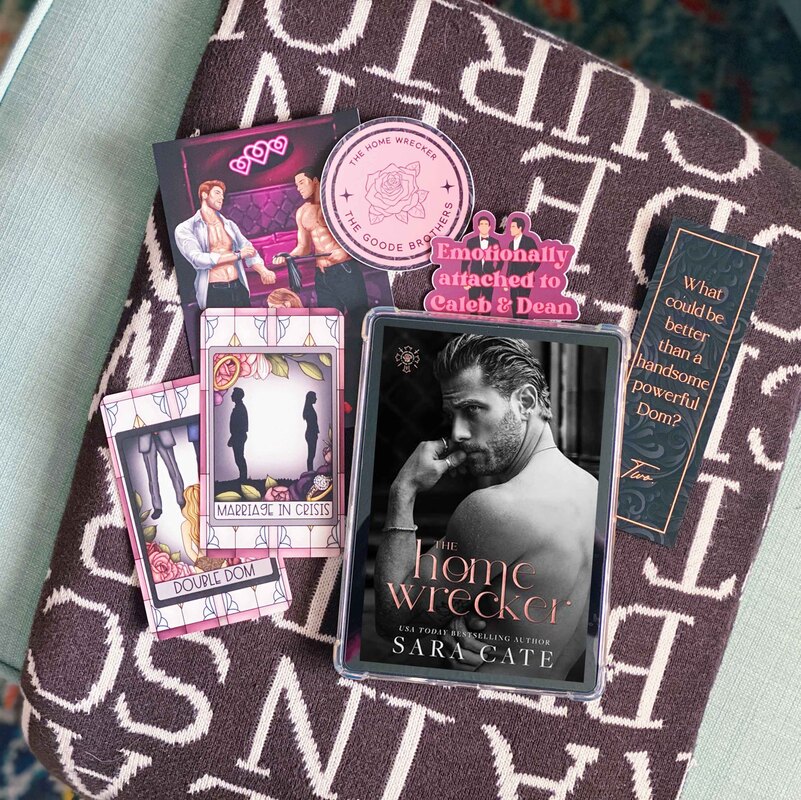
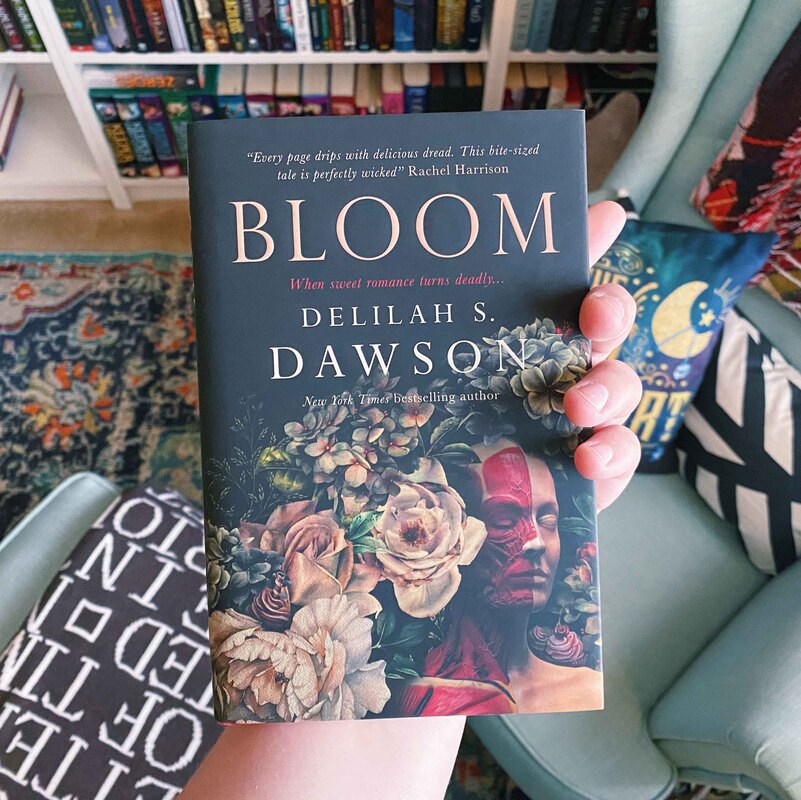
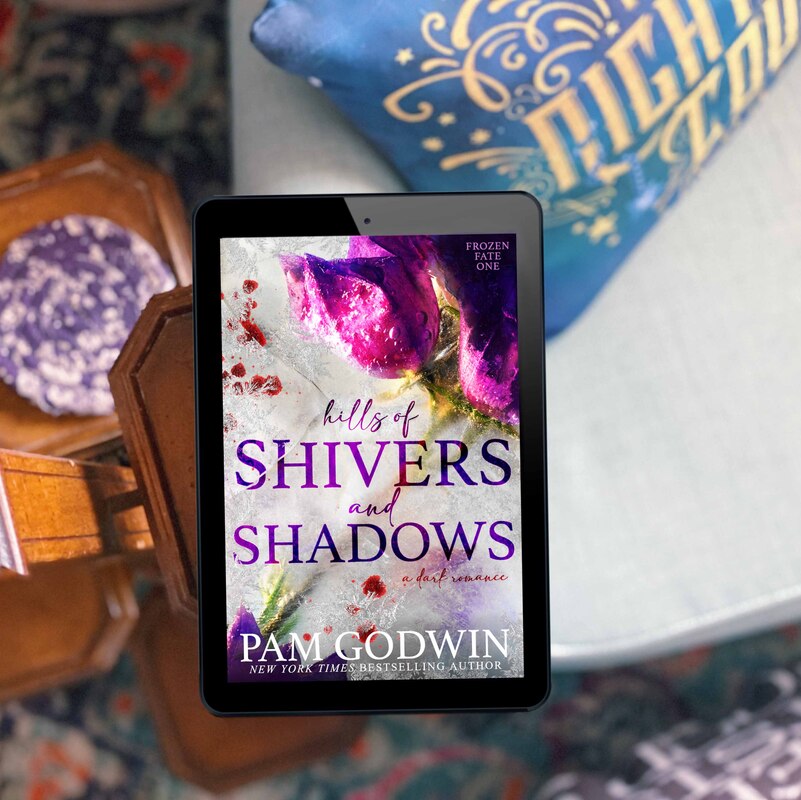
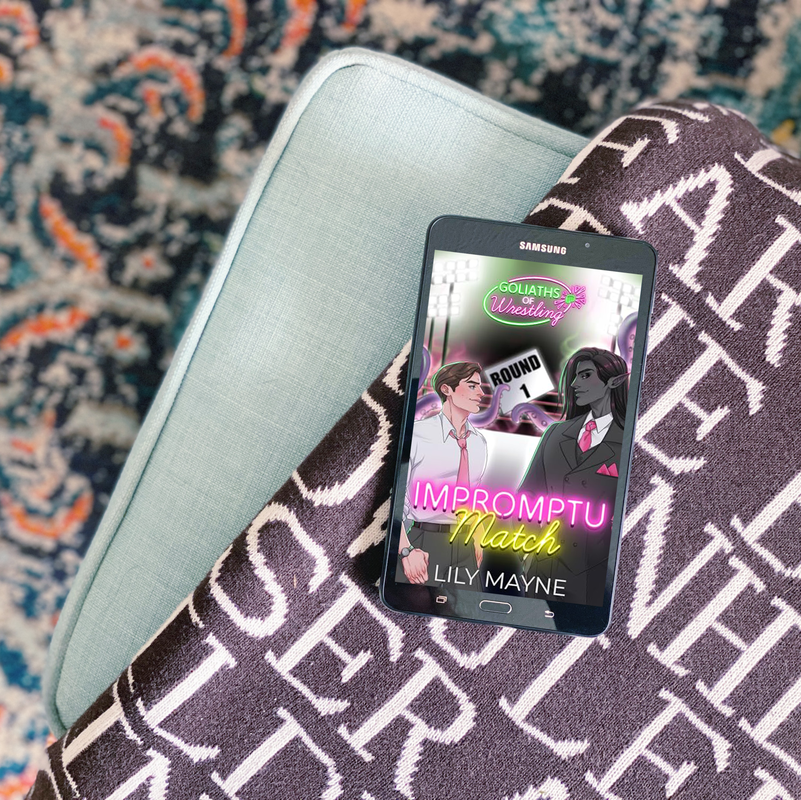
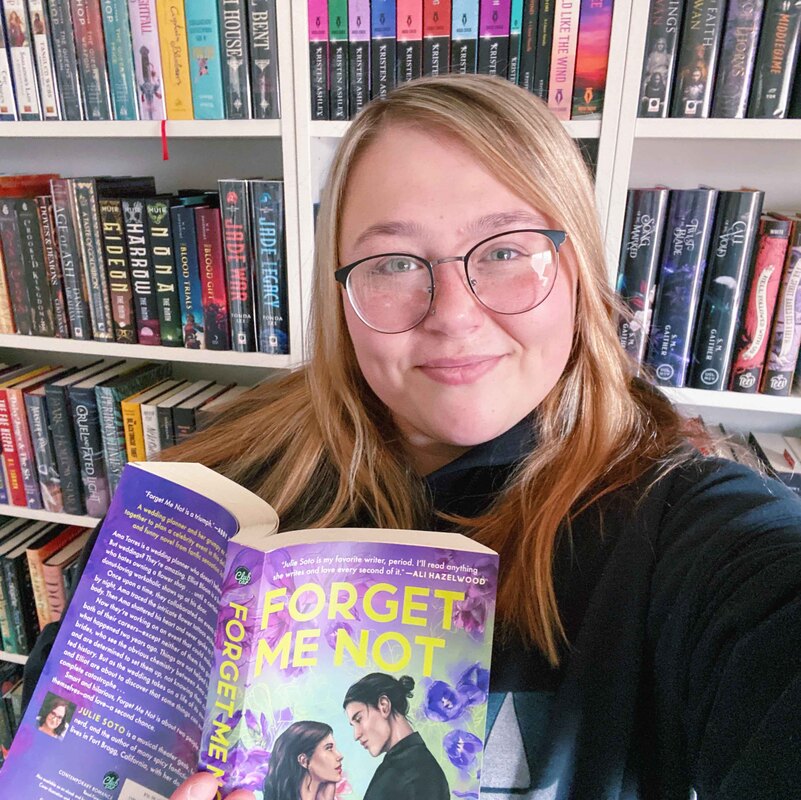
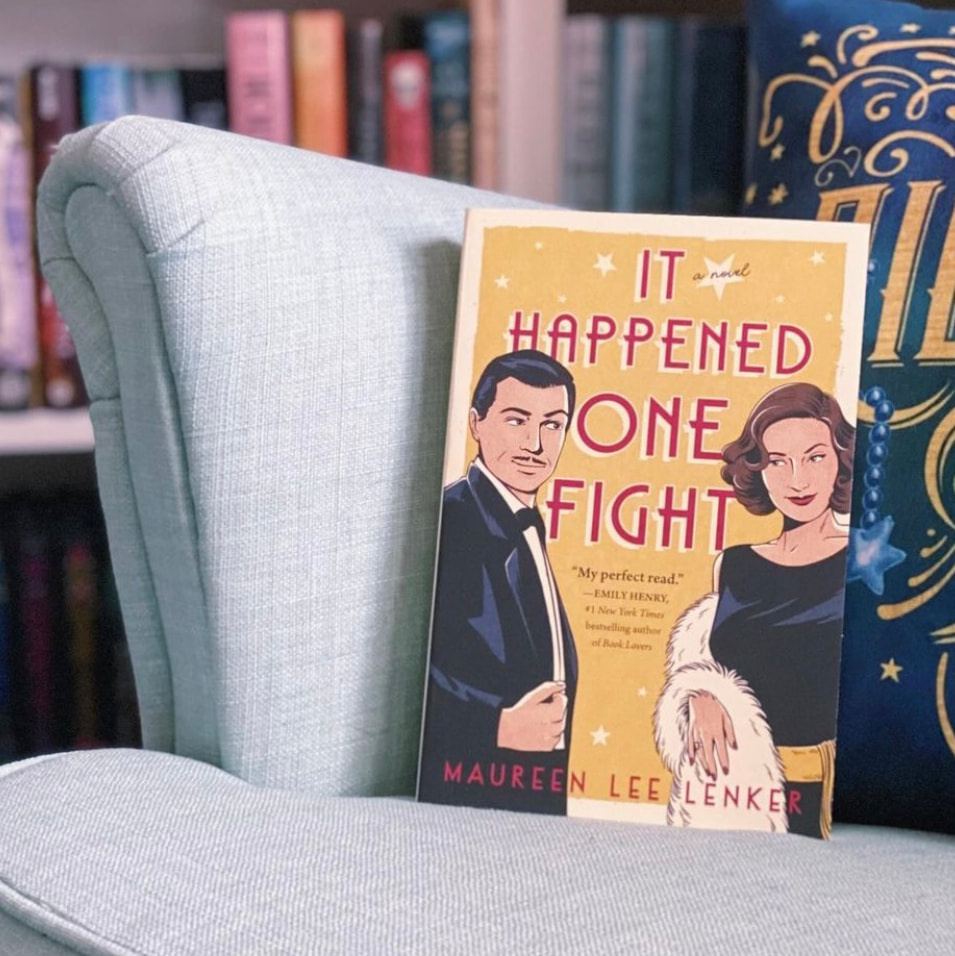
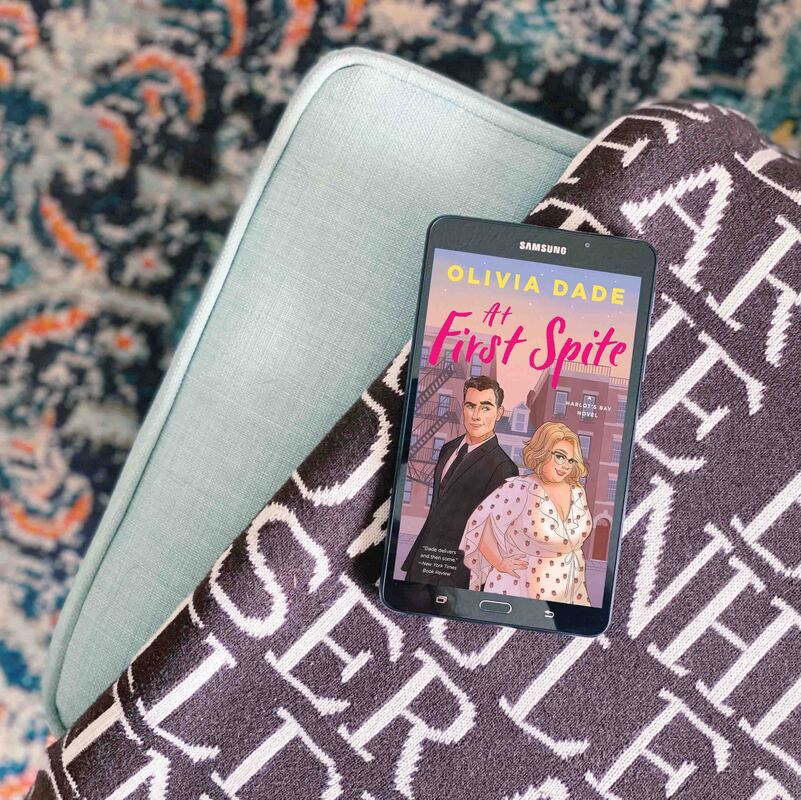
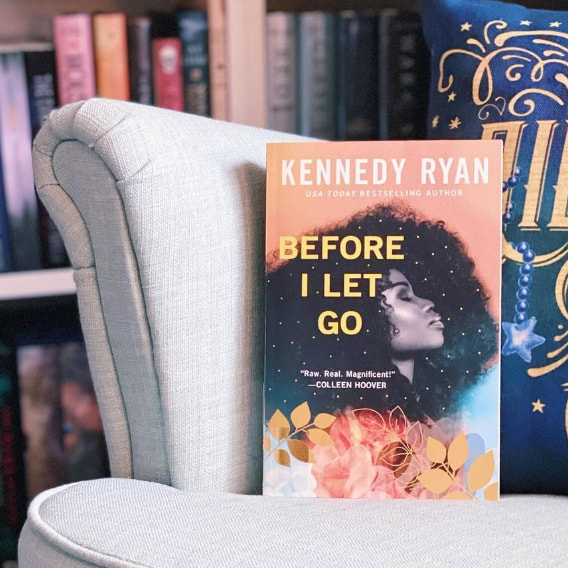
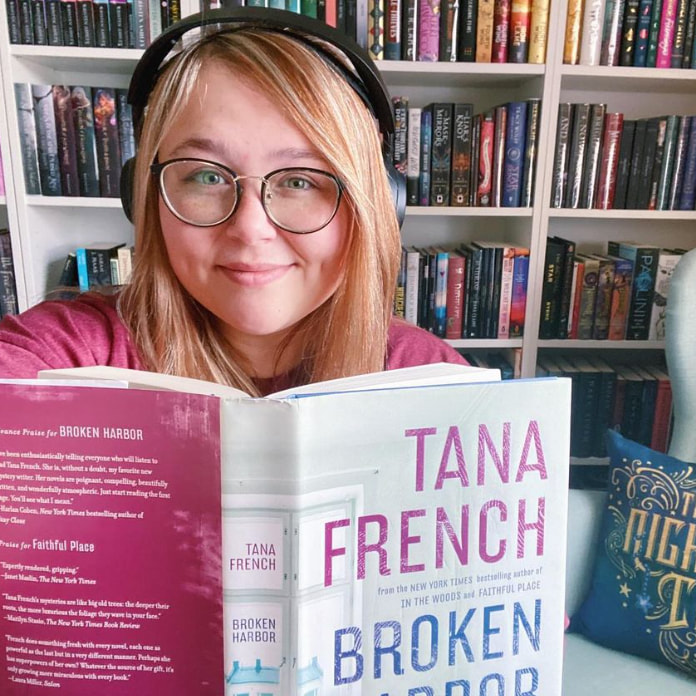
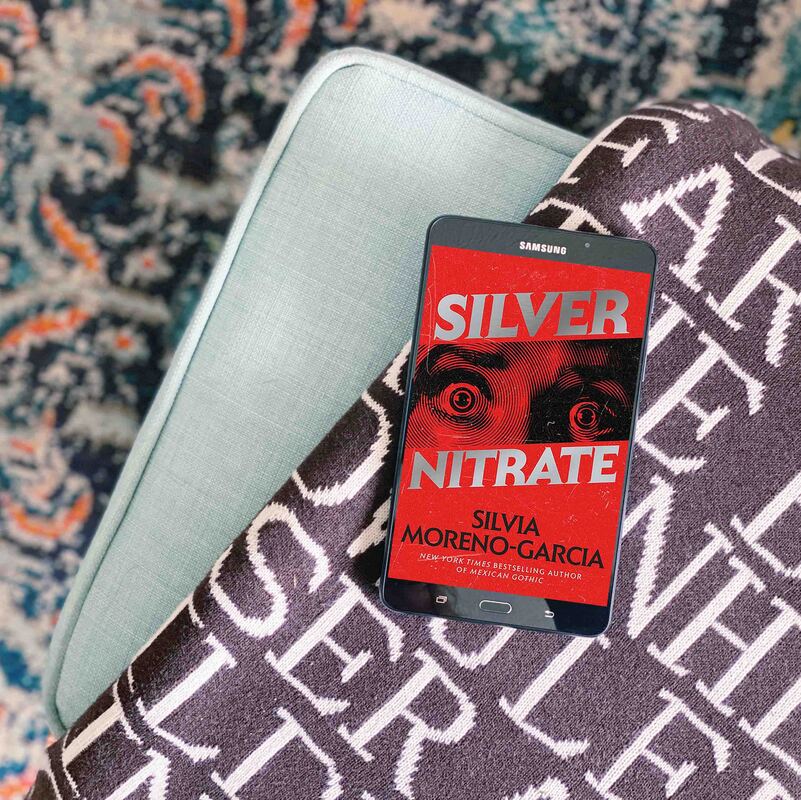

 RSS Feed
RSS Feed
